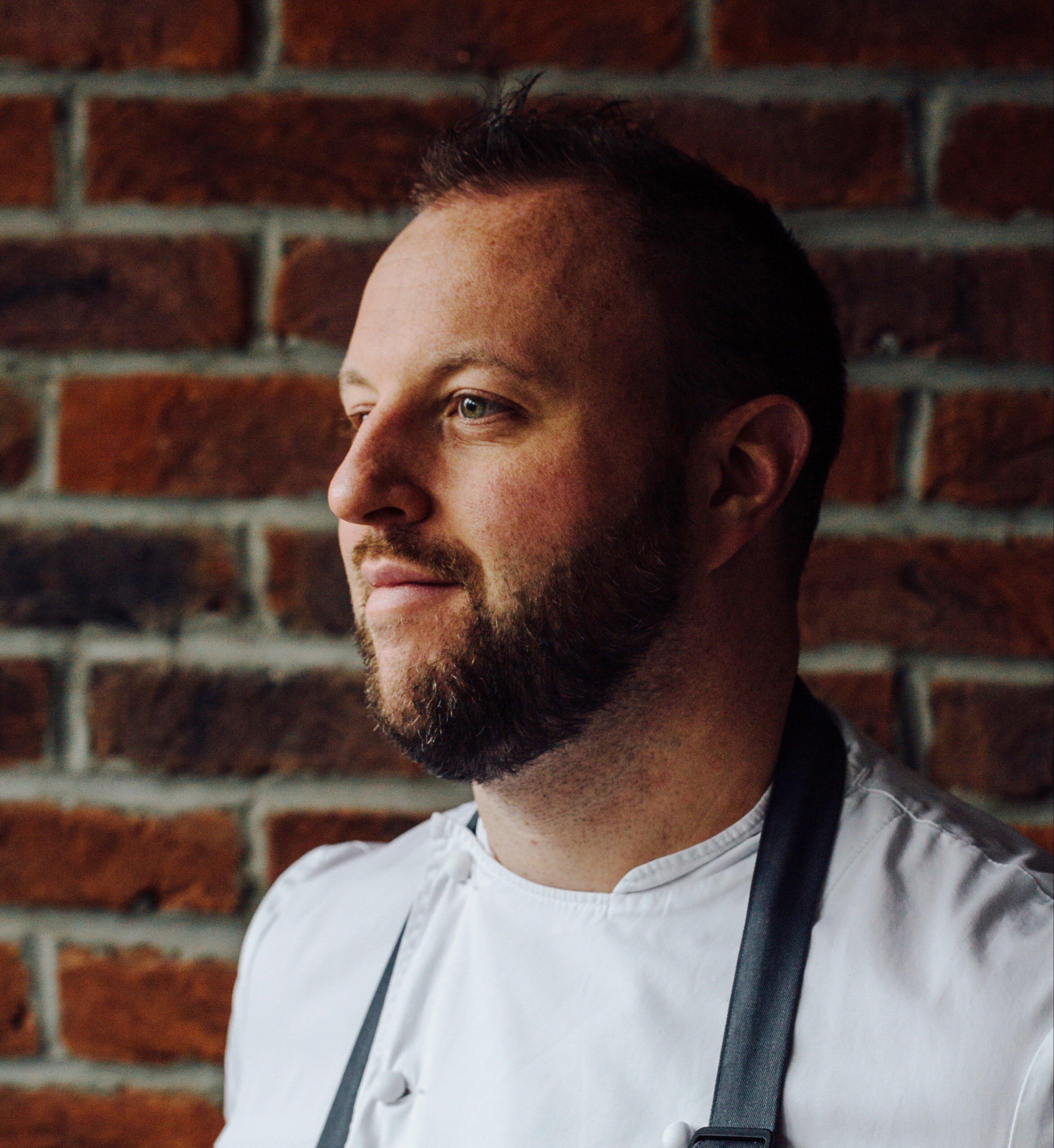Paul Welburn on transforming his Michelin-starred Oxford Kitchen into the more casual 215
The Covid pandemic has seen Paul Welburn transform his Michelin-starred Oxford Kitchen into a simpler neighbourhood concept, but with the same ambition. Tessa Allingham reports.
A silver Bibendum figure stands on the bookshelf at Paul Welburn’s restaurant, gleaming, grinning and gleeful. His eyes are wide, hands on his hips, yellow Michelin banner stretched round a well-fed midriff.
The more sober red metal wall plaque, indicating the awarding of a Michelin star, has been removed, however. “It didn’t seem right to keep it up,” says Welburn. “I’m not cocky. Technically, we don’t have a star any more or three AA rosettes or anything, because we are now a different restaurant.”
Welburn is executive head chef at 215 Kitchen & Drinks, a neighbourhood restaurant set among the functional shops and cafés of Summertown, north Oxford. In its pre-Covid identity as the Oxford Kitchen it held a Michelin star, as the plaque until recently proclaimed. It was a huge deal, bestowed in 2018 and retained in 2019, and the first for Oxford since Raymond Blanc’s long-closed Petit Blanc was anointed in 1996.
Blanc’s message of congratulations meant a lot to the younger chef, whose first taste of a top-class kitchen had been at Belmond Le Manoir aux Quat’Saisons, Oxfordshire, as an 18-year-old stagiaire. “Michelin is not why we cook, but it’s a reward for the team – recognition,” says Welburn. “And if you get a star once, you want it again. I craved it ever since W1 [Gary Rhodes’ former flagship restaurant, where Welburn was head chef for five years].”
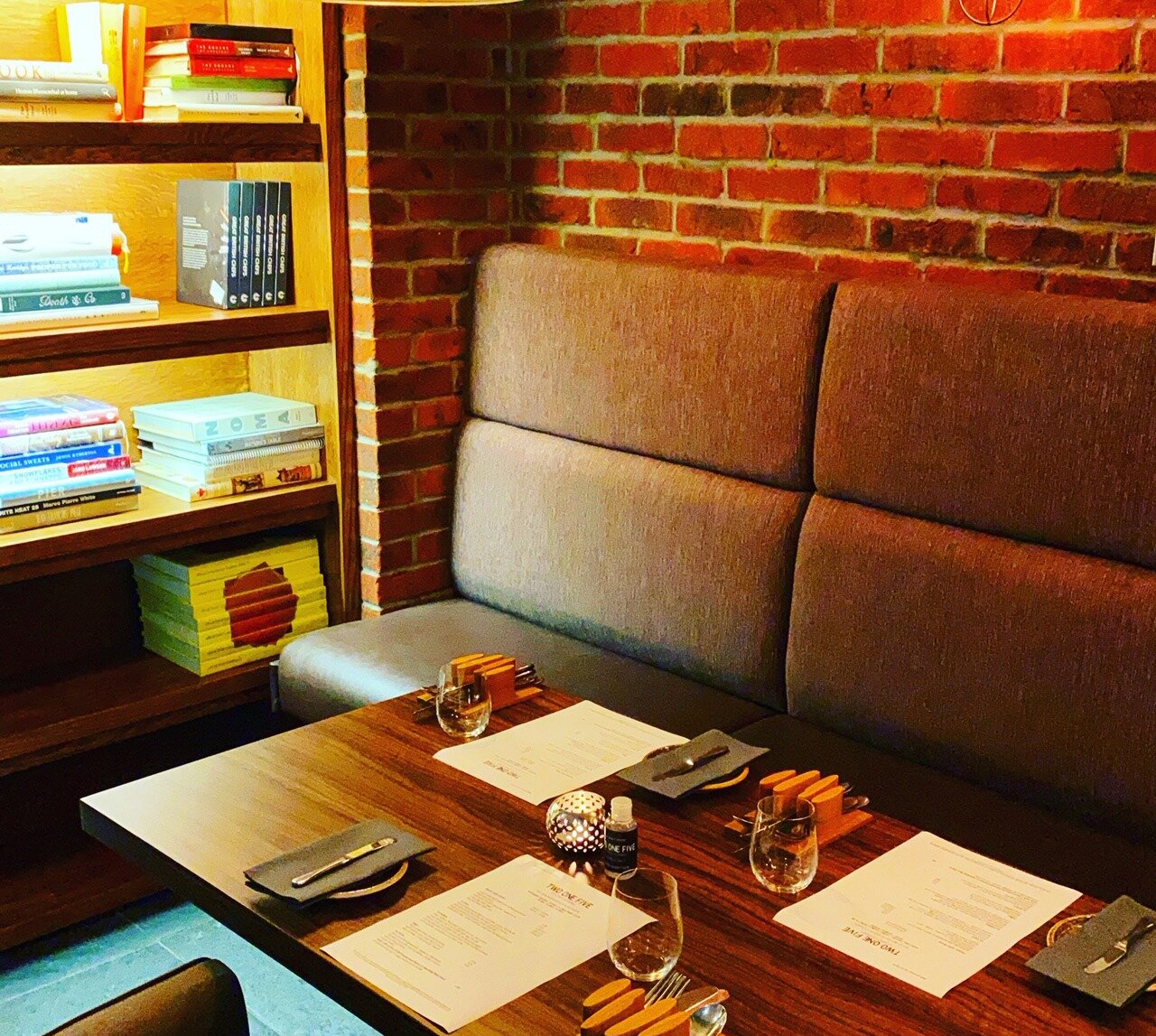
Speaking with Welburn in February, when coronavirus was but a blot on a distant horizon and the Oxford Kitchen operated in its former guise, his determination was palpable. The city’s growing independent restaurant scene was exciting, so why couldn’t Oxford be the new Bristol? Why couldn’t it smash eating out like Cambridge had? There were plans for a private dining room upstairs with a satellite kitchen and an intimate chef’s table. Guests had flocked from across the UK and beyond to enjoy Welburn’s £69, 10-course tasting menu with its classically rooted, imaginative, precise cooking, alive with flavour inspired by global cuisines.
“We were doing 60-70 covers every night, 600-700 plates of food. Unbelievably busy. One guide told us that we had ‘grown up’. It was like a coming of age for my food, and I thought ‘we’ve started something for Oxford’.”
Then, in that week in March, Welburn sank to “rock bottom”. Some 300 bookings fell to 15 and the owners considered closing. “Like most chefs, I’m a control freak. I hated not knowing. What the hell would I do? I’ve been a chef since I was 16, it was all I knew.”
Like most chefs, I’m a control freak. I hated not knowing. What the hell would I do? I’ve been a chef since I was 16, it was all I knew
Furlough was a lifeline, and the owners decided to rebrand, reboot and rebuild. One month later, on 24 April, the Oxford Kitchen was replaced by a simpler, more keenly priced neighbourhood restaurant, 215 Kitchen & Drinks.
Explaining the rationale for the change to The Caterer in April, the chef said: “I don’t want to open with tasting menus and then find that we can’t sustain that. We can always build up again, but I don’t want to have to cut things away after reopening and reduce and reduce – it’s better to go the other way round.”
I don’t want to open with tasting menus and then find that we can’t sustain that. We can always build up again
Call 215 Kitchen & Drinks a ‘bistro’ or ‘brasserie’ at your peril, however: “I hate those words,” says Welburn. “What do they even mean? Lazy. We are a restaurant, a neighbourhood restaurant. You’re not going to find pork belly and mash here.” Through summer, 215 offered takeaways – and still does (see below) – opening for dine-in guests on 31 July.
During a conversation in September, the pain of the past six months is never far below the surface. “I’m trying to find a positive,” he says, head in hands, even before the 22 September announcements plunged hospitality into a maelstrom of anger, tension and confusion.
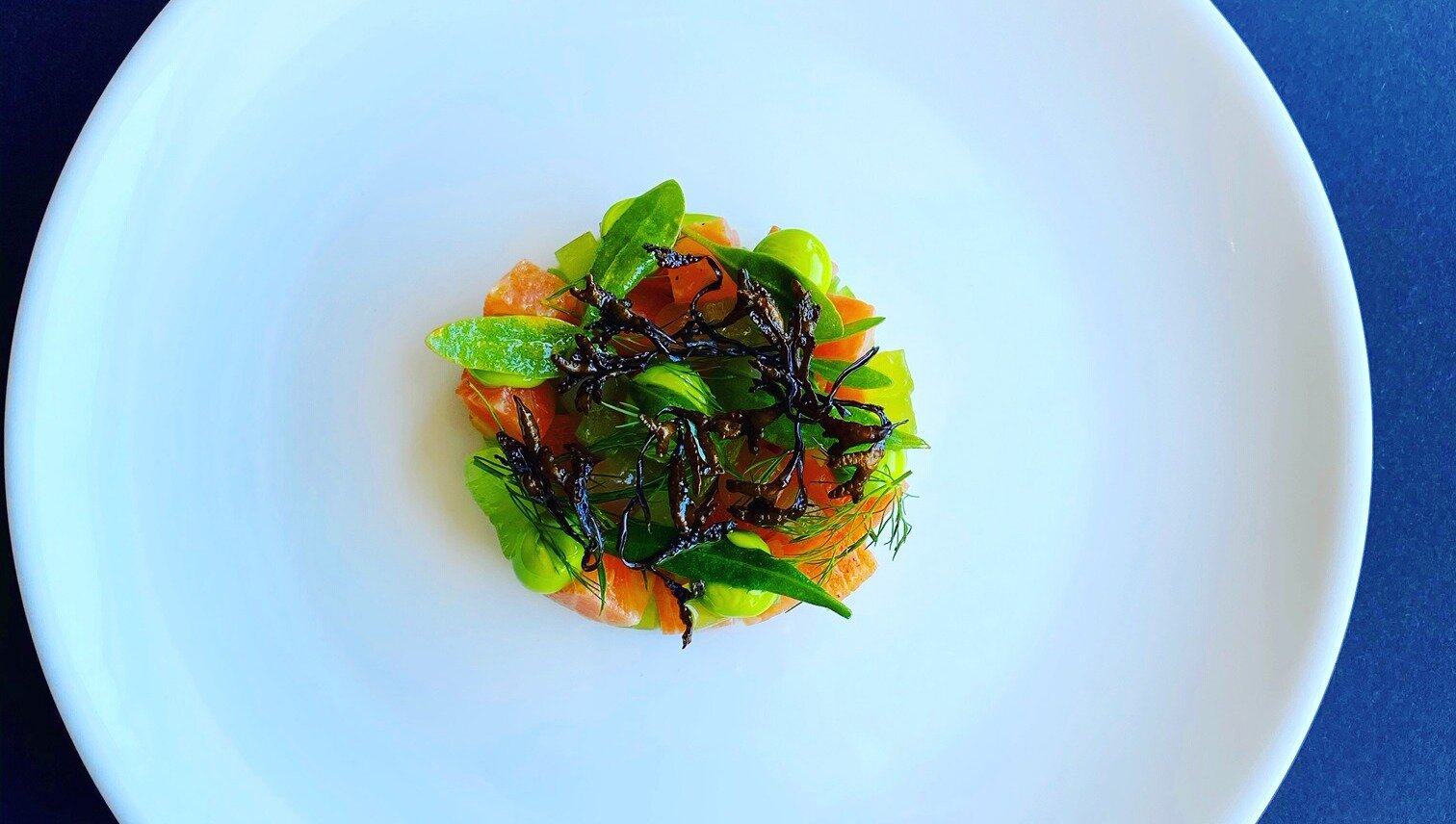
“But there are many people worse off. We are lucky… up to a point. I could have thrown my toys out of the pram, gone back home [to Scarborough]. But we have a restaurant that’s open, and that’s humbling, and I looked at the guys and wanted to keep at least some jobs. The owners have given me the tools to make this a success. I owed it to them to try.”
An elusive positive? “The only positive of lockdown was that it made us question everything – and I mean everything. When a restaurant is running full-tilt, you can’t stop and think, let alone change.”
Time for change
Change had in fact been afoot before the pandemic. “Oxford Kitchen was always an evolving restaurant, with young, raw staff; people we could bring on. But it had become stale, stagnant. We were offering a taster menu at £59 or £69 plus extensions. I felt it pushed away real locals and that bugged me. We had lots of London commuters, tourists, families treating student children, but I wanted that real local support.”
Welburn’s constant forward momentum was a powerful drive: “I can’t stand routine. I’m critical of everything. Even after the star I was pushing. I didn’t want us to plateau. If you sit back you get lost in the weeds.”
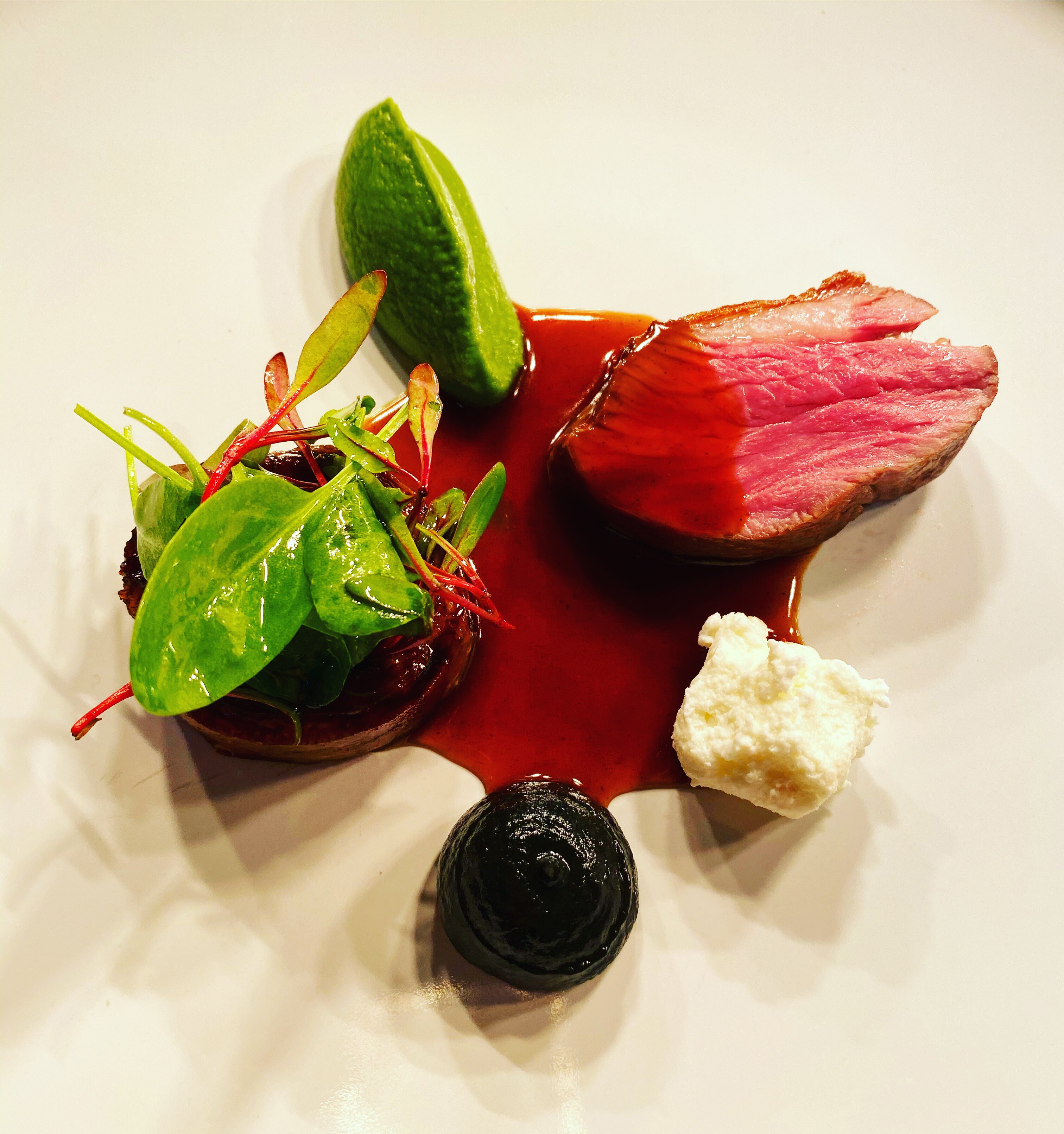
The pandemic sped up the process of change to create a model that – the team hoped – would secure the business against rising costs and the Covid-related unknown. Redundancies were inevitable with the reduction in covers required by social distancing (down to 35 from 70), and slightly reduced opening hours, so the team was slimmed from eight chefs to four with three front of house. Utilities were scrutinised, terms negotiated, the weight of the menu card questioned (it is now the industry-standard disposable sheet).
The previous 10-course tasting menu (with dietary alternatives) has been replaced with a simpler 4-5-4 set (£35 for two courses, £40 for three at both lunch and dinner). Spend is nudged up by extras – bread (£5), sides (£4), snacks (£3.50) – and a daily changing ‘market special’ where Welburn might offer a dose of luxury: a fat Scottish scallop with hoisin suckling pig, gooseberry purée and caviar; or Cotswold venison ‘black and blue’, the saddle water-bathed, seared and served pink with black garlic emulsion and blueberry ketchup.
Jerusalem artichokes are braised in stock flavoured delicately with Yorkshire lavender before being roasted and glazed skin-off, while a classic grand veneur sauce, heady with alcohol, anchors the dish.
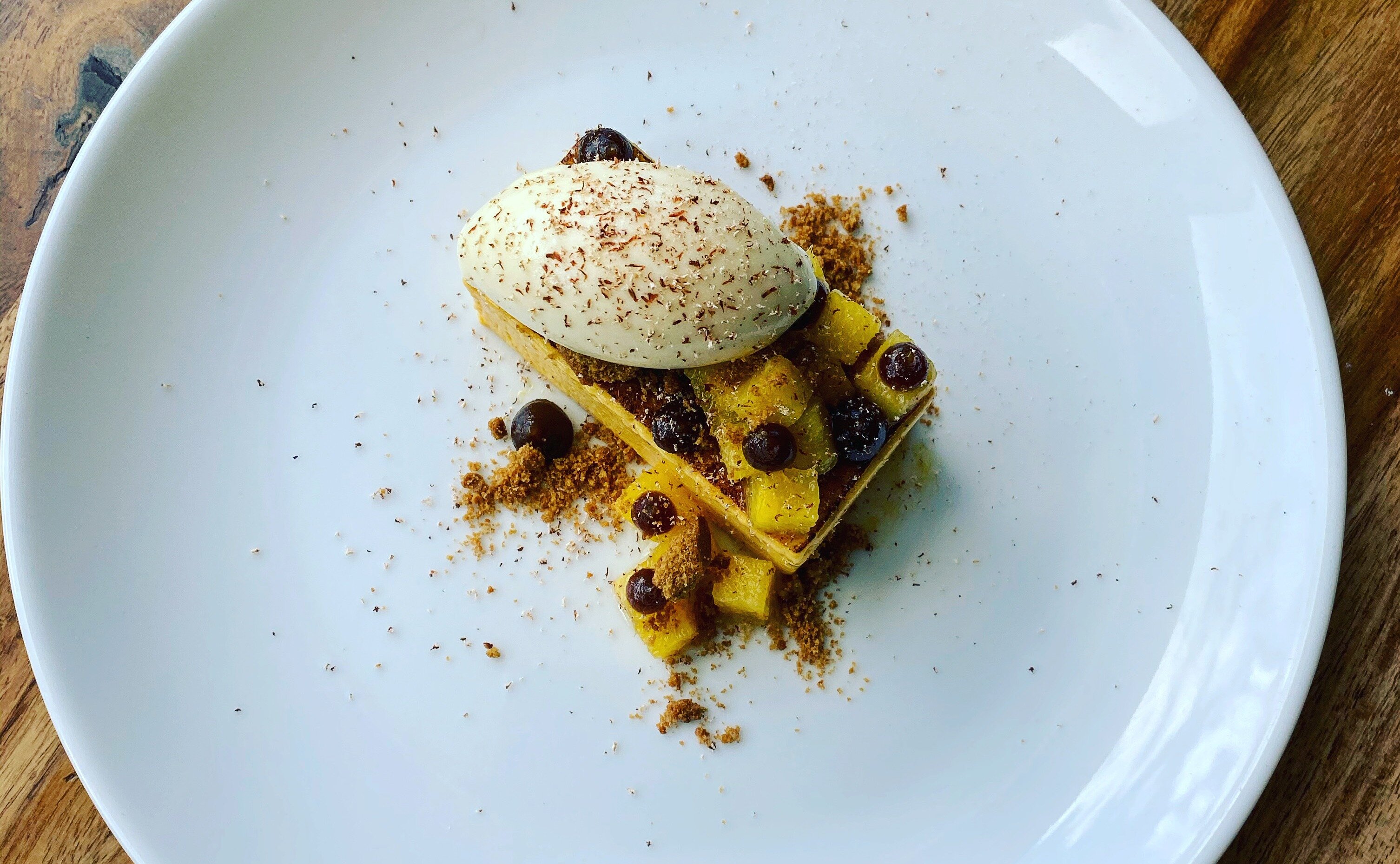
A long-standing favourite is lemongrass-smoked halibut, a prime 140g piece of fish with Granny Smith apple, kohlrabi, octopus and apple dashi, the latter a flavour that Welburn loves for its versatility and the flavour punch it gives light dishes.
Uptake of a £45 five-course tasting menu, composed of small-scale versions of main menu dishes plus an optional £5 course, has been stronger than expected. “We don’t advertise it. A tasting menu-only format can’t work these days in my opinion, it’s too restrictive, but guests like the surprise.”
Little has changed with the actual food. “But we revisited every dish ahead of opening. We questioned waste, became obsessive about margin. We have to use our skills as chefs to make the best of different cuts. Pork collar is underrated, but when you brine it, grill it, glaze it, it’s superb. Skill, time and knowledge are more important than ever.”
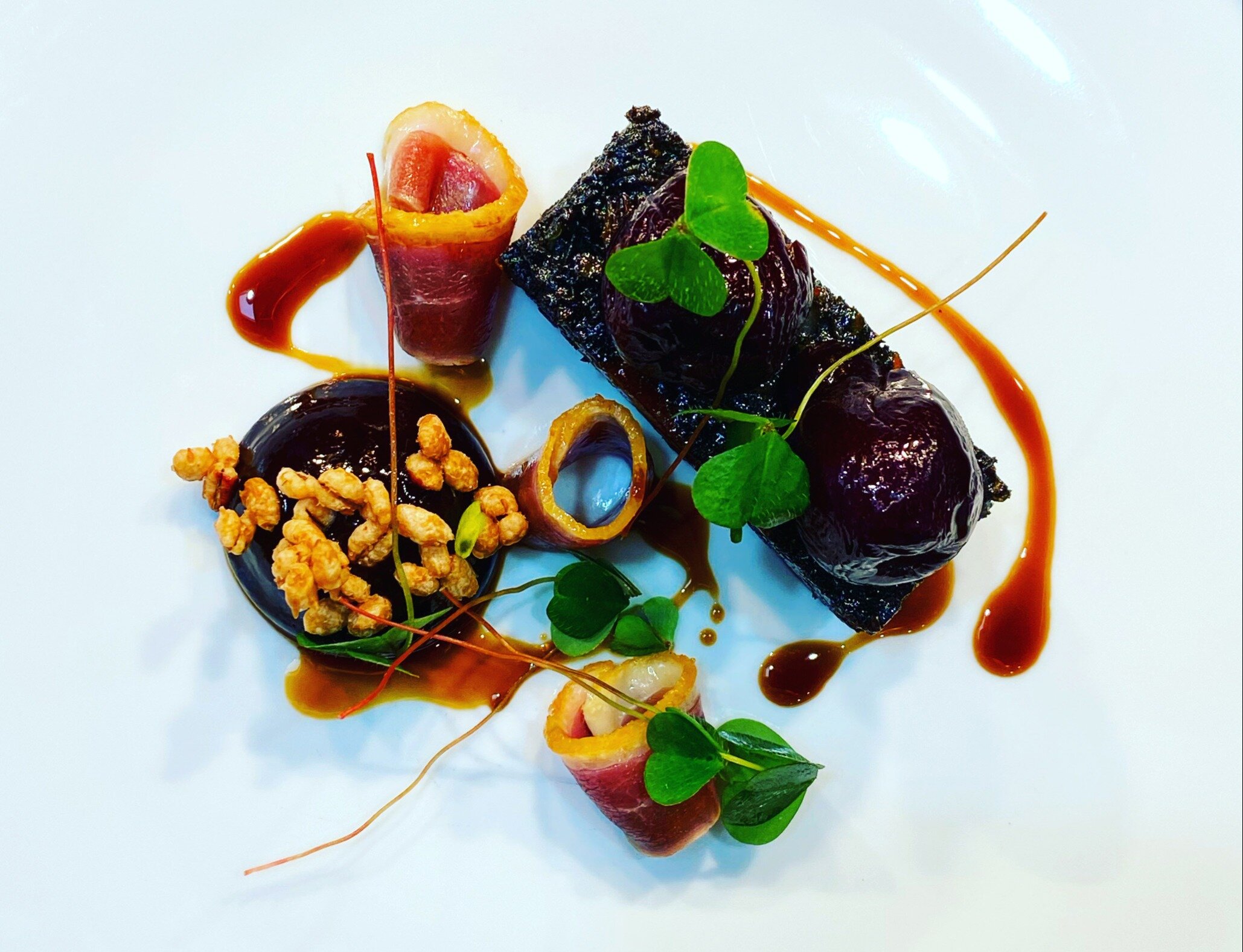
Favourites are inevitably bound up in nostalgia. Confit duck ‘cake’ references Andrew Pern’s black pudding, foie gras and apple dish, which Welburn made “countless times” during his first job at the Star Inn, Harome. “It looks like a slab of black pudding but it’s all duck – the egg, sausage, ham. Fruit cuts the richness and changes seasonally. Cherries are over, so now it’s greengage ketchup and meadowsweet-poached greengages.”
A pot of kaffir lime ‘cheesecake’ – layers of sweet-sour lime curd, puffed wild rice and salted coconut crumble, and a sorbet made with Valrhona’s 85% Abinao chocolate – has Welburn wistful for ‘chocolate lovelies’, a shop-bought frozen dessert that he loved as a child. “It’s fun and ticks the chocolate dessert box without being heavy. I’d eat that sorbet all day!”
Autumn and winter 2020 will inevitably challenge hospitality like never before, but Welburn stands “certainly in a stronger position” than he imagined possible in April.
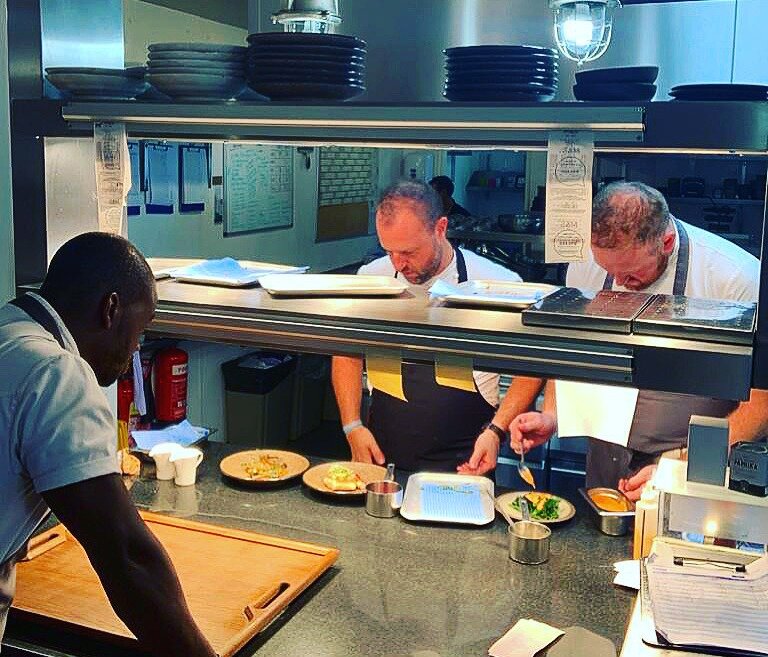
“If you’d have told me then that we’d be trading as we are now [mid-September], I’d have not believed you. The last two weeks have been at capacity every evening. Lunches are quieter, but better than before, and we’re doing our own Eat Out to Help Out [£10 discount for lunch Wednesday-Friday]. That scheme was amazing; it filled the restaurant midweek.”
Other incentives include happy hour with a £10 cocktail and smoked almonds to share, or midweek early-bird offers that include a bottle of house wine for every table of two.
The support from the immediate community has been gratifying. “Several customers come every week, which is fantastic. I think we’ve pitched it right.”
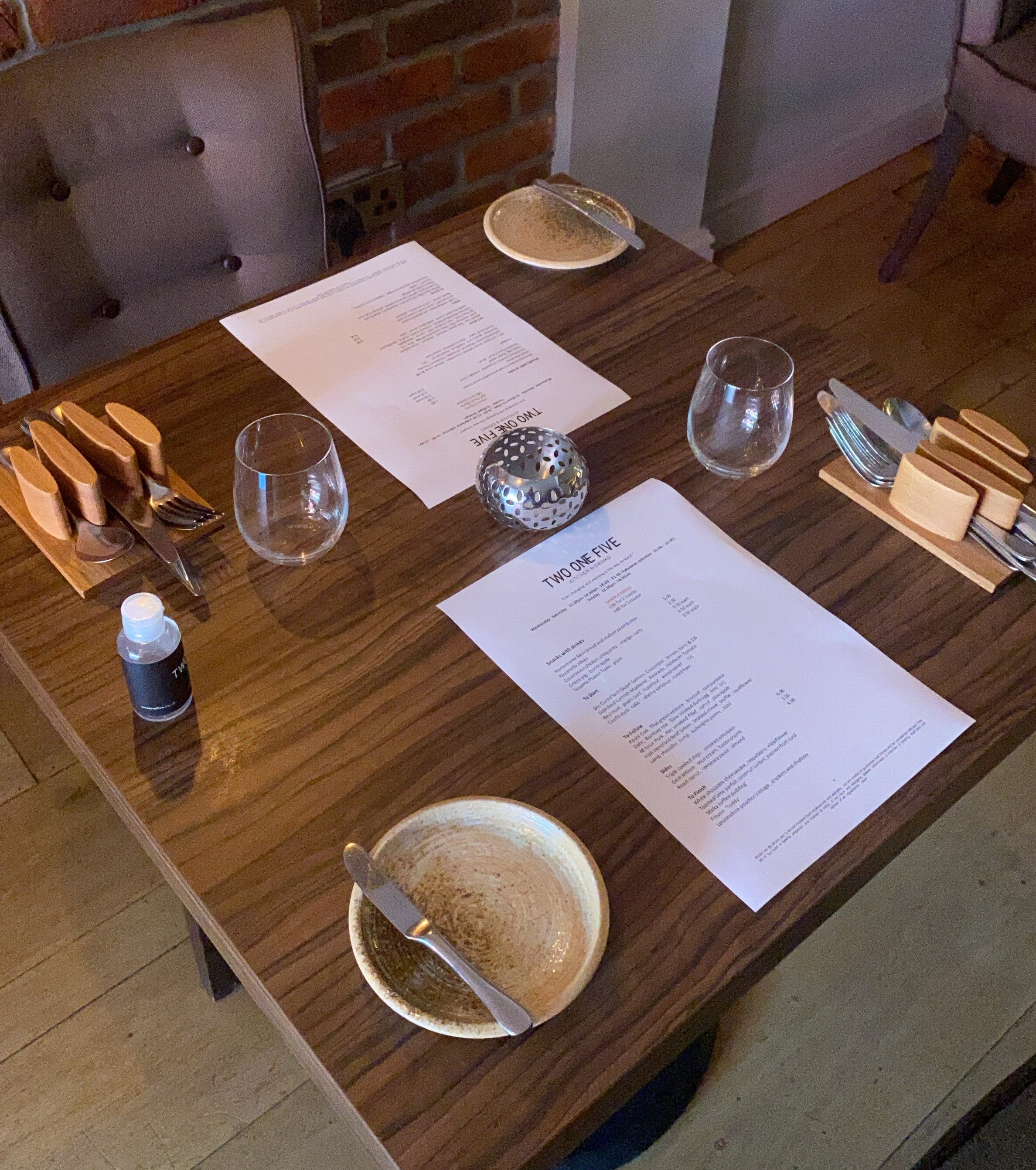
But what about that plaque? Welburn doesn’t hide his hunger to hang it back up on the wall, close to Bibendum. “With Michelin there’s no bullshit. We didn’t win the star just because we have a tasting menu, we won it for our seasonal, tasty food and consistency. The focus right now is on survival, and that means focusing on guests, not awards.
With Michelin there’s no bullshit. We didn’t win the star just because we have a tasting menu, we won it for our seasonal, tasty food and consistency
“But I am confident the food is at the same level as before, if not better because we’re doing fewer covers. I only know one way to cook. If we’d started doing fish and chips or kebabs, I’d be the first to call Michelin and say ‘don’t bother coming, we’re completely different’.”
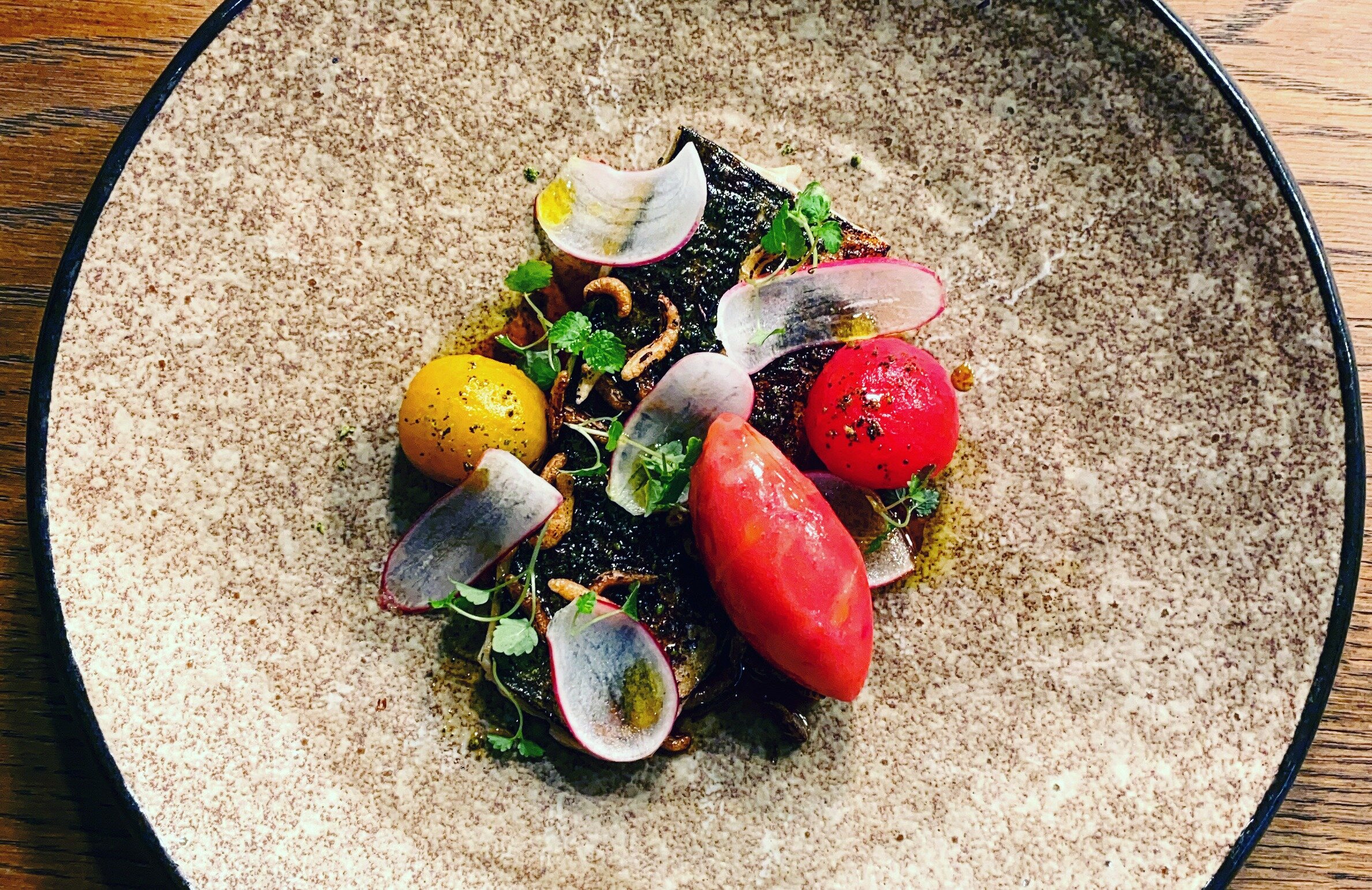
He drifts into his thoughts: “If we get inspected… if we get a star…” Then he pulls himself up. “But if we don’t, I’ll just wait until next year. We’re in a pandemic that seems to be getting worse. There’s only so much I can control.”
About 215 Kitchen
215 Kitchen & Drinks
215 Banbury Road, Summertown, Oxford OX2 7HQ
www.twoonefive.co.uk
Opened July 2020. Since 2014, the site had operated as the Oxford Kitchen
Key people Paul Welburn (executive head chef); Peter Wilton (sous chef); Mike Sutton (front of house manager)
Owners Samantha Wilson and Stephen Quinn (founders of school catering firm, Cucina, now part of the Impact Food Group)
Seats 35 inside, 14 on pavement
Open Wednesday-Saturday lunch and dinner; Sunday lunch
Stay In & Eat Out
The ‘Stay In & Eat Out’ takeaway offer, launched in early June, will continue. The £25, weekly changing, two-course menu is available Friday-Sunday for collection or local delivery.
Sales have roughly halved since the restaurant reopened, but orders are larger and there is greater uptake of extra dishes (£4-£6), paired wines (half-bottles from £10) and pre-mixed cocktails (from £8). Videos explain preparation and plating, and a ‘music to cook to’ playlist on Spotify is “a bit of Kiss, a bit of Aerosmith, Oasis, Madness… a bit of fun”. A bottle of hand sanitiser, and a tealight for the home table are thoughtful additions.
Paul Welburn
The draw of Oxford was powerful for Scarborough-born and -trained chef Paul Welburn. As an 18-year-old college student, work experience at Raymond Blanc’s Le Manoir aux Quat’Saisons left an indelible mark. “I was offered a job but thought I needed London on my CV. Oxford kept coming into my head, though.”
Early years saw Welburn at Rhodes in the Square under Gary Rhodes and Michael James before he became a private chef on a Med-moored yacht. Back in London a year later, he worked for Searcys, at St Mary Axe (aka the Gherkin) under Brian Hughson and culinary director Richard Corrigan, before joining Hughson as sous chef on the opening team at Rhodes W1 at the Cumberland hotel, Hyde Park. Within eight months the restaurant won a Michelin star, and in March 2008, aged just 25, Welburn became head chef. He retained accolades for the next five years before taking on an executive chef role with Searcys, launching and developing restaurants, building teams. “It was good ‘business’ learning.”
Lured by the opportunity to create a menu to call his own, Welburn headed to Sussex to run the Leconfield, Petworth, then to help launch the Half Moon pub, Kirdford, with owner Jodie Kidd. In early 2017, Oxford called.
Sample dishes
- Scorched mackerel, ponzu, furikake, iced watermelon, radish
- Beetroot, goats’ curd, wood sorrel, smoked grains, nuts
- 48-hour pork, turnip, pear, sea aster, cider sauce
- Butternut squash and apple tortellini, carrot dashi, smoked almonds, coriander, ponzu
- Spiced pumpkin parfait, pineapple, ginger, rum, nutmeg
- Toasted hay custard, raspberry, mint, lemon sablé
The 4-5-4 menu costs £35 for two courses, £40 for three, lunch and dinner. A £45 five-course tasting menu is offered on arrival but not promoted. A ‘locals lunch’ offers either two courses or one plus a glass of house wine for £20.



